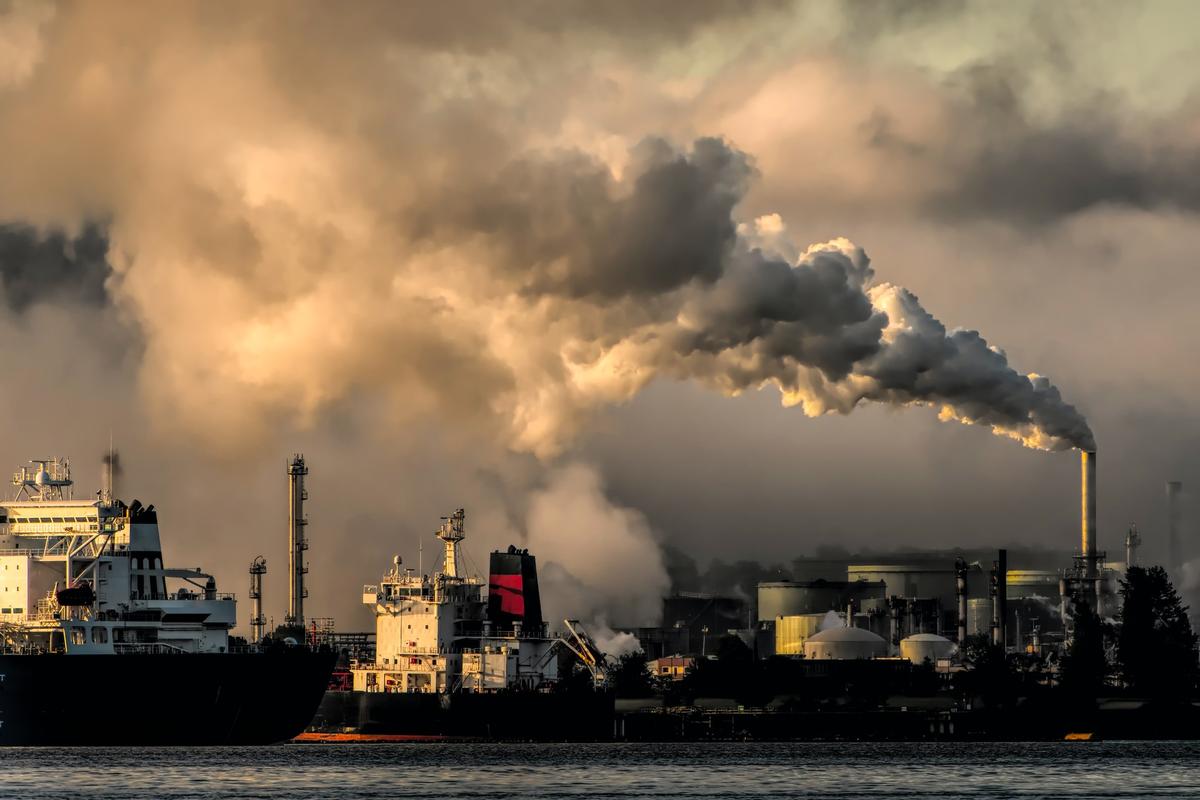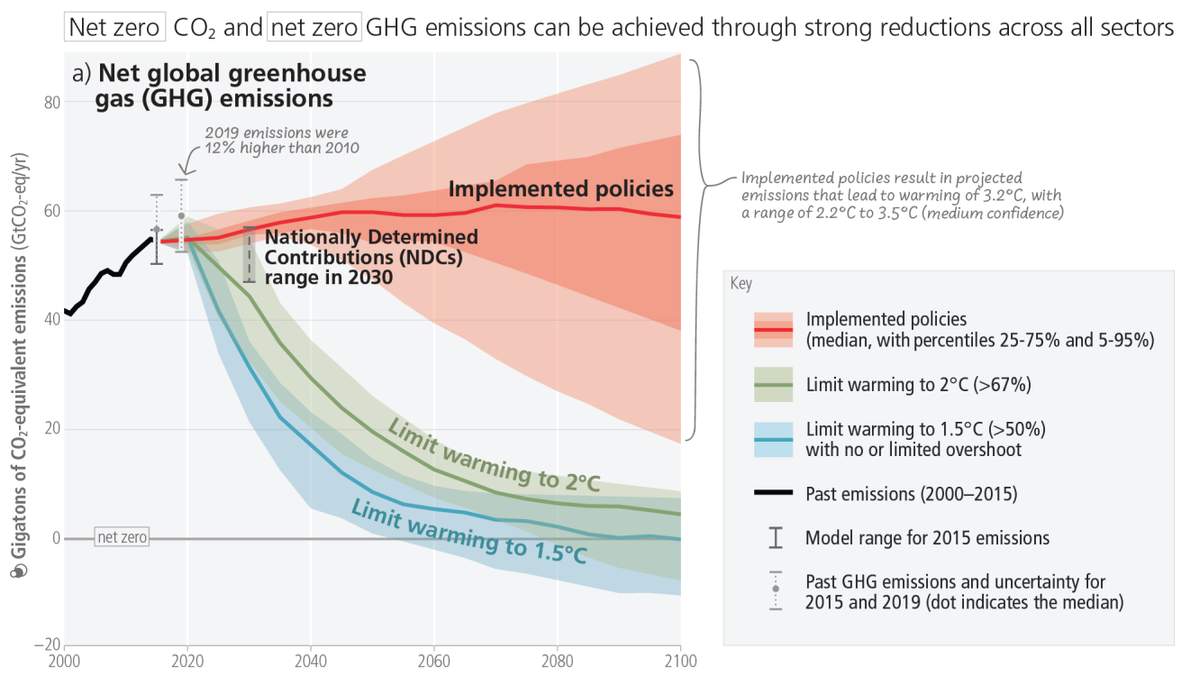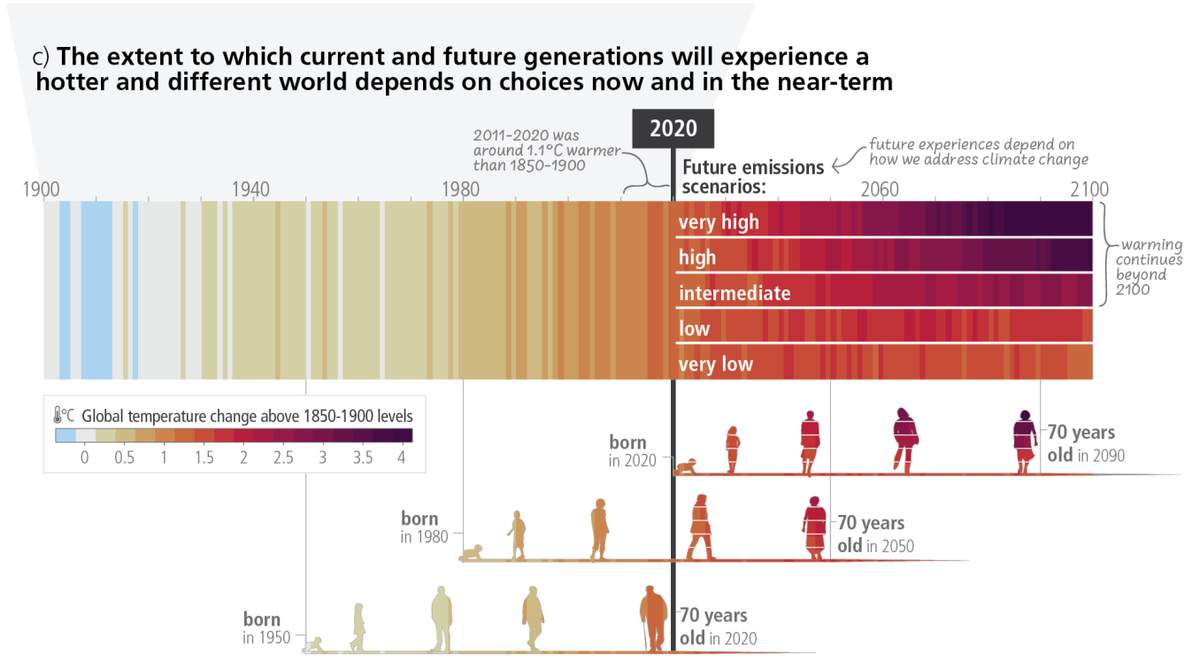On Monday, a United Nations (UN) climate group released a major new report on climate change. The report explains that the climate crisis has become even more serious, and that massive climate action must be taken before 2030 to avoid the worst effects of the crisis.
The UN’s IPCC (Intergovernmental Panel on Climate Change) has been releasing reports on climate change since 1990. The reports are based on the work of thousands of scientists.
Since 2018, the IPCC has created six detailed special reports on the climate crisis. The most recent report brings together the main ideas of the earlier reports. It’s the most complete climate crisis report ever created.

(Source: Chris LeBoutillier, via Unsplash.)
Climate Crisis
Since people first began burning coal to run factories, the world’s temperature has gone up by 1.1 degrees Celsius (C)*. This increase has led to serious long-term changes in weather patterns that affect all life on Earth.
The world is getting hotter, mainly because humans are burning “fossil fuels” like coal, oil, and natural gas to make energy. These fuels give off pollution called “greenhouse gases” or “carbon emissions”, which make the climate emergency worse.
The effects of climate change can already be seen: melting ice in Antarctica and the Arctic, higher temperatures, heat waves, record dry periods, wildfires, record rains, and more strong hurricanes.
Scientists say the world must take strong action before 2030 to avoid the worst effects of the climate crisis.
In the 2015 Paris agreement, the countries of the world agreed to cut pollution in an effort to limit global warming to 1.5ºC. Every bit that the planet heats up beyond 1.5ºC will make life on Earth far more difficult.
But the IPCC report makes it clear that countries have not been keeping their promises to cut pollution. The Earth is currently on track to reach 1.5ºC by the early 2030s.

(Source: IPCC.)
The rise in temperature may seem tiny, but it’s powerful enough to change weather systems around the world, causing terrible effects.
Many of the effects will be familiar from recent news stories: Longer and more serious heat waves, extended droughts, bigger and more intense wildfires, stronger hurricanes happening more often, flooding from heavy rainfall, and coastal flooding from rising seas.
Hoesung Lee, who leads the IPCC, said, “The report offers hope, and it provides a warning.”
The warning is clear: The IPCC says the world needs to cut greenhouse gas emissions almost in half by 2030. By 2050, countries need to completely stop releasing carbon dioxide into the atmosphere.

(Source: IPCC.)
If not, global temperatures will continue to rise, and the future will become far more difficult and dangerous. And even though richer countries have caused most of the pollution, people in poorer countries will be far more affected by the crisis.
But the hope is equally important: There is still time to avoid the worst effects of the climate crisis – if the world acts strongly right away.
Governments know what must be done to avoid a climate disaster. Most of the technologies needed for renewable power, such as wind, solar, and water power, already exist, and are getting cheaper.
Forests must be protected, and more trees must be planted. New technologies that remove carbon dioxide from the atmosphere and store it will be needed.
😕
This image has not been loaded because of your cookie choices. To view the content, you can accept 'Non-necessary' cookies.
Hoesung Lee (above), who leads the IPCC, said, “The report offers hope, and it provides a warning.” The warning is clear. The hope is that there is still time to avoid the worst effects of the climate crisis – if the world acts strongly right away.
But right now, there is no substitute for massively cutting back on producing and using fossil fuels. The IPCC admits that dropping fossil fuel projects will be expensive.
But the report points out that dealing with the disasters that will be caused if climate change is not slowed will be far, far more costly.
UN leader António Guterres says humans have never been better prepared to solve the climate challenge. But he added, “We must move into warp speed climate action now. We don’t have a moment to lose.”
* Climate change temperatures are measured against the time when humans started burning coal for power. This article talks about climate change using Celsius (C). Talking about climate change in Celsius is more common and it makes the changes easier to see and remember.
If you want to think about the temperature changes in Fahrenheit( F), you can use these figures: 1.1°C = 2.0°F, 1.5°C = 2.7°F, 2°C = 3.6°F.
